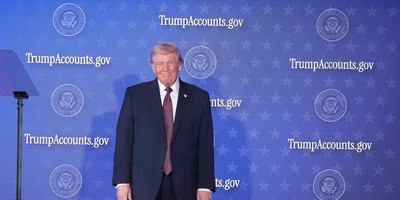Harvard’s April 29 report on its anti-Semitism amounts to a 500-page confession. Beyond damning, it is self-indictment. There will be superficial takeaways—that there are two seemingly offsetting reports, Harvard president Garber’s apology, the university’s commitment to do better. However, these must not obscure the real takeaways of denial and delay which are even more damning than the report itself.
Harvard’s two reports, on anti-Semitism and anti-Muslim bias, were undertaken at Garber’s instruction in January 2024. Preliminary reports were available in June; the full reports were supposed to be released in the fall. They were not. Then, they missed their next anticipated release in early April 2025.
Harvard’s delay brought the reports into its ongoing conflict with the Trump administration over campus anti-Semitism. The Department of Education instructed Harvard to send the report to the administration.
Presumably, it was the administration’s demand that finally brought the report into the light of day, almost a year and a half after work began and nearly a year after its preliminary version. Its contents leave no doubt as to why Harvard withheld it so long.
The report begins with a Jewish student’s anecdote of her being told that her planned recounting of her grandfather, a Holocaust survivor, bringing other survivors to the then-British Mandate of Palestine. Student organizers of the event rejected it as “not ‘tasteful.’” When she asked what was untasteful about it, the students “laughed in my face and said, ‘oh my God.’”
Regarding anti-Semitism, the report states: “Over the past 10 to 15 years, several common themes affecting the experience of Jewish members of the Harvard community have emerged.” Beginning “in the mid-2010s, Harvard’s atmosphere began to change… And after October 7th, our Harvard community fell apart.”
Recommended
With the reports came Harvard president Garber’s apology letter: “I am sorry for the moments when we failed to meet the high expectations we rightfully set for our community.” This bromide, along with the issuing of two reports (which threaten to obfuscate this into a dueling equivalency of dueling grievances) endanger the anti-Semitism report’s real lessons.
In contrast to Garber’s claim that these anti-Semitic acts were “moments,” they stretch back “10 to 15 years.” It was therefore well before 10/7/23 that “our Harvard community fell apart.” These incidents were known. Garber’s letter calls them “long simmering tensions,” but unlike his claim that they came “to the surface” after 10/7/23, they were clearly above the surface for Harvard’s Jewish population. They should have been for the University too. Yet, despite “10 to 15 years,” they were tolerated.
It is equally clear Harvard only responds to them under duress. The report cites the 1960s when “the longstanding barriers to the admission of Jews to Harvard fell away.” That is of course the same period when Title VI made such barriers illegal. Harvard’s recent steps to address anti-Semitism came after it settled two lawsuits regarding its anti-Semitism—the 4/29 report now making entirely clear why Harvard settled. The anti-Semitism report only came about after former-president Claudine Gay had embarrassed Harvard over the issue before Congress and the world. And Harvard dragged its heels in releasing the report, presumably because the administration demanded it, and the University realized it could lose control of the contents.
Harvard is as unwilling, as it is unable, to right its own ship. The administration should therefore undertake its own investigation into the university’s anti-Semitism. Also, it should look into clawing back federal money that has gone to Harvard over the prolonged period of these incidents—not simply current and future money. Finally, under the circumstances, questioning Harvard’s tax-exempt status is more than justified.
It is no wonder Harvard held these reports back as long as it could; only to have them come out at the worst possible time: when the university is defending itself against the very charges that the anti-Semitism report corroborates. Harvard’s hubris, that it was above exposure and above the law, has cost it, and it could—and should—cost them even more. Just as the university has allowed it to cost its Jewish students for so long.

























Join the conversation as a VIP Member